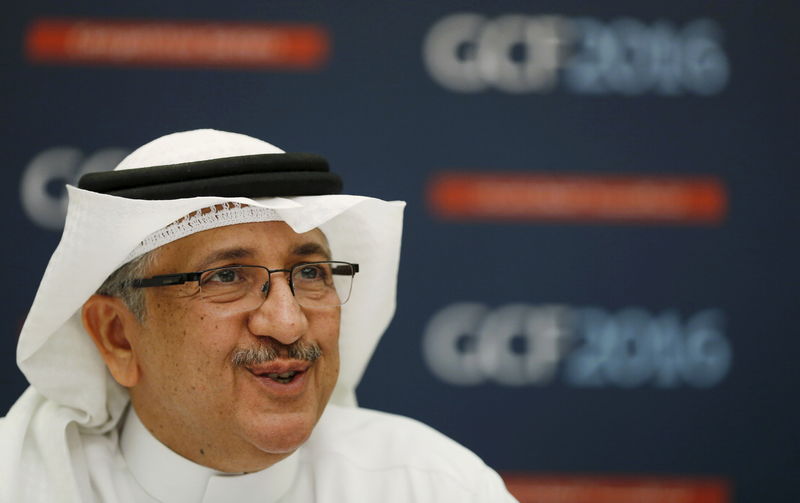By Andrew Torchia and Marwa Rashad
RIYADH (Reuters) - Saudi Arabia aims to at least double annual inflows of foreign direct investment (FDI) over the next 10 years by focusing on new sectors such as mining, health care and information technology, the head of its investment agency said on Sunday.
The plan outlined by Abdullatif al-Othman, governor of the Saudi Arabian General Investment Authority (SAGIA), is part of a radical revamp of economic policy as the kingdom seeks to adapt to an era of cheap oil.
In the past, foreign investment was heavily concentrated in the oil and gas sector of the world's top crude exporter, as well as downstream industries such as petrochemicals.
But the plunge of oil prices over the past 18 months has called that strategy into question. Othman said SAGIA was now seeking foreign capital in a wide range of sectors without direct links to oil.
"If you look at an economy that has been able to fetch about $10 billion a year in the traditional sector...we should be looking at multiples of that," he said in an interview.
"So our hope is that we would double or triple this level of FDI on a rolling average for the next 10 years."
SAGIA faces big obstacles. A sluggish bureaucracy and an undeveloped legal system have deterred foreign investment in the past; now low oil prices are slowing growth of the Saudi economy. Geopolitical tensions in the region may also weigh.
Inflows of FDI peaked at about $40 billion in 2009 but have been trending down since then and totaled just $8.0 billion in 2014, figures from the United Nations Conference on Trade and Development show.
Othman said SAGIA would seek to remove bureaucratic or regulatory obstacles to investment by talking to foreign firms to identify their concerns, then discussing them with ministries and other government bodies.
The investment push is part of a larger economic reform drive conceived by Deputy Crown Prince Mohammed bin Salman. Details of the program, which includes privatization, changes to the way in which Saudi Arabia manages its oil wealth and efforts to make state spending more efficient, are expected to be announced in coming days or weeks.
Initially, mining may prove one of the most attractive investment areas for foreigners. While the kingdom has been extensively explored for oil and gas, Othman said deposits of many other minerals had not yet been fully identified. It is believed to have big deposits of phosphate, bauxite, base metals and gold.
In a joint venture that could become a model for future projects, a local firm, majority state-owned Saudi Arabian Mining Co (SE:1211), began producing copper last month at a mine near Medina along with Canada's Barrick Gold Corp (TO:ABX).
Othman said Saudi Arabia aimed to move far beyond resource extraction, partly because it needs to generate hundreds of thousands of jobs for a rapidly growing local population.
Last September, the government said it would let foreign investors own 100 percent of retail and wholesale businesses. Previously, the ceiling was 75 percent. Authorities have since received expressions of interest from foreign retailers, Othman said, declining to name them.

Saudi Arabia does not have a major domestic automobile industry. Othman said authorities were in discussions with auto companies, especially makers of spare parts and firms in the area of buses and trucks, but did not identify the firms.